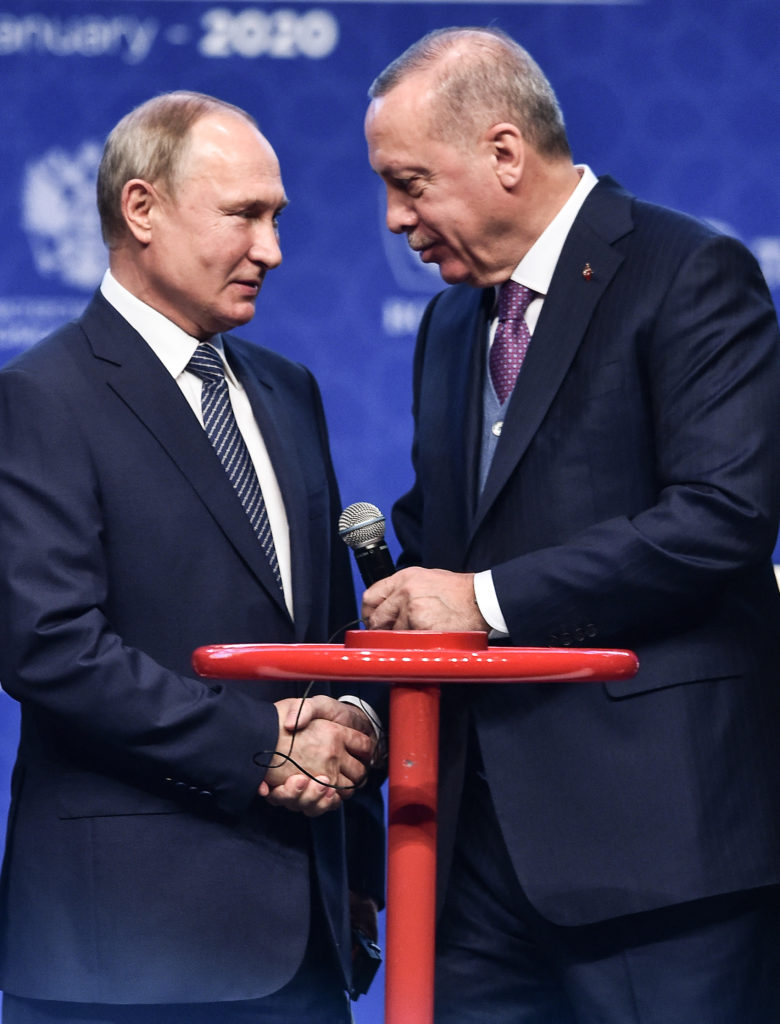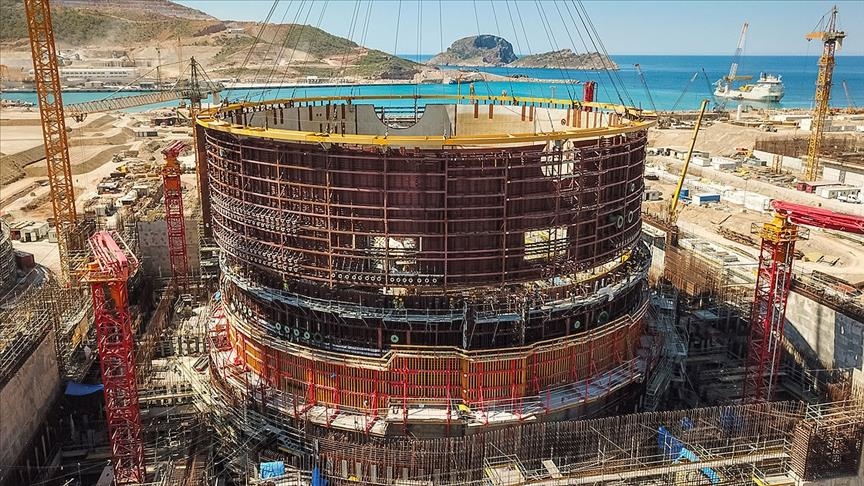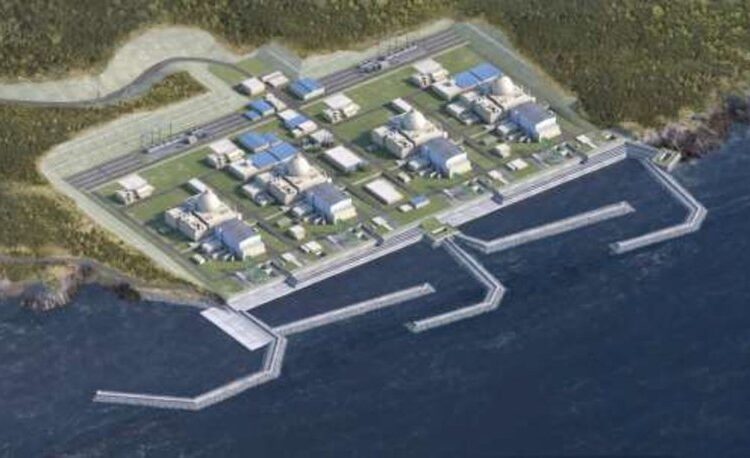Levent Kenez/Stockholm
Reports suggesting that Turkey plans to award the contract for its second nuclear power plant to Russia, as it did with the first one, are reinforcing Turkey’s dependence on Russia in the energy sector. Criticism coming from both the opposition and environmentalists has arisen due to Russian officials — rather than Turkish authorities — making statements about the planned facility in Sinop, located in northern Turkey.
On February 28 Alexey Likhachev, the head of Russia’s Rosatom State Nuclear Energy Corporation, said in a speech before the State Duma, Russia’s lower house of parliament, that Turkish authorities have already made a “political decision” to construct a second nuclear power plant with Russia in Sinop following the construction of the first one in Akkuyu, in the south of Turkey.
Likhachev noted that the allocation of the site for this project was confirmed by the president of Turkey.
“Currently, we’re studying the specifics, with the likely location being Sinop — situated not on the Mediterranean but on the Black Sea,” said Likhachev. He also mentioned Rosatom’s potential participation in a tender for the construction of a third nuclear plant in Turkey.
Last autumn Likhachev announced Rosatom’s intention to utilize the proceeds from energy sales to Turkey towards the construction of this second nuclear power plant. The Akkuyu nuclear power plant built by Rosatom, obtained the right to earn a commission from electricity sales for its first power unit in December 2023, with operations expected to commence in 2024.

On January 31, 2023, the Korea Electric Power Corporation (KEPCO) submitted a proposal to the Turkish Ministry of Energy for a series of nuclear facilities, including Sinop. However, discussions between Turkey and Russia regarding a second nuclear power plant at Sinop have been ongoing for several years, and preparations for construction have already begun at the site.
The prospective second plant will be located in Sinop, with technical specifications likely matching those of the Akkuyu plant, featuring four VVER-1200 power units, each generating 1.2 GW.
On September 4, 2023 following his meeting with Russian President Vladimir Putin in Sochi, Turkish President Recep Tayyip Erdogan announced that Russia and Turkey planned to take steps regarding the Sinop nuclear power plant.
However, the opposition believes that Turkey has relinquished its sovereignty rights and made significant concessions to Russia with its first nuclear facility.
Main opposition Republican People’s Party’s MP and shadow energy minister Deniz Yavuzyılmaz, in a recent statement at the Turkish parliament, shed light on Turkey’s deal with Russia concerning the Akkuyu nuclear power plant, emphasizing that Russia has been guaranteed commissions for the energy generated by the plant. Yavuzyılmaz expressed concern over the terms of the contract, stating that the facility, which was constructed at a cost of $22 billion, is solely owned by Russia. Over 15 years, Turkey has committed to paying a total purchase guarantee amounting to $38 billion, with the total sum over 60 years estimated to reach at least $284 billion at current market rates, or 5.68 trillion Turkish lira.” He further criticized the deal, highlighting that while Russia stands to gain significantly, Turkey will be left importing from a foreign plant within its borders. Yavuzyılmaz warned that the agreement effectively establishes what could be perceived as Russia’s first military base in Turkey since 11 square kilometers of Turkish territory are being handed over to a foreign country for a century.

Nordic Monitor previously reported that Russia planned to install radar and missile systems in a Turkish town located approximately 280 miles from a critical NATO radar base as part of the agreement to build the Akkuyu plant in Turkey, prompting an outcry and security concerns from the opposition. Despite warnings by the opposition that a radar base could compromise Turkey’s national security and violate its sovereignty, the motion was defeated in parliament on October 26, 2022 by a majority of votes from Erdogan’s ruling Justice and Development Party (AKP) and its far-right backers, the Nationalist Movement Party (MHP)
In 2022 Putin lauded Turkey’s pivotal role as the most reliable conduit for gas supplies to Europe. In recognition of Turkey’s strategic position, Putin extended an offer to collaborate in establishing a European gas hub, leveraging Turkey’s geographical advantage to enhance energy distribution throughout the region. The proposal underscores the deepening ties between Russia and Turkey in the energy sector, signaling a significant step towards greater energy cooperation and stability in Europe.
Following the March 15-17 elections in Russia, it is expected that Putin’s planned visit to Turkey will lead to the signing of a new agreement regarding the natural gas hub initiative.
Last year Russia postponed an approximately $20 billion natural gas debt incurred by Turkish public company BOTAŞ until after 2023.
In 2022 Turkey sourced nearly half of its coal imports from Russia for electricity generation, compared to Russia’s share of 26 percent in 2021. The proportion of natural gas and oil imports from Russia to Turkey fluctuates over time but remains at around 40 to 45 percent. Iran and Azerbaijan follow Russia In energy exports to Turkey.
In July 2023 the Nuclear Counteraction Platform (NKP) filed a lawsuit to annul the “positive” environmental impact assessment (EIA) report issued for the Sinop nuclear power plant planned to be constructed in İnceburun. Despite the identification of nearly 300 reasons for annulment in the expert report prepared by a team of 15 scientists appointed by the Samsun Administrative Court, the court rejected the lawsuit seeking the cancellation of the “positive” EIA report. Despite the Council of State overturning the court’s decision, the project related to the facility is still proceeding under the government’s supervision.












